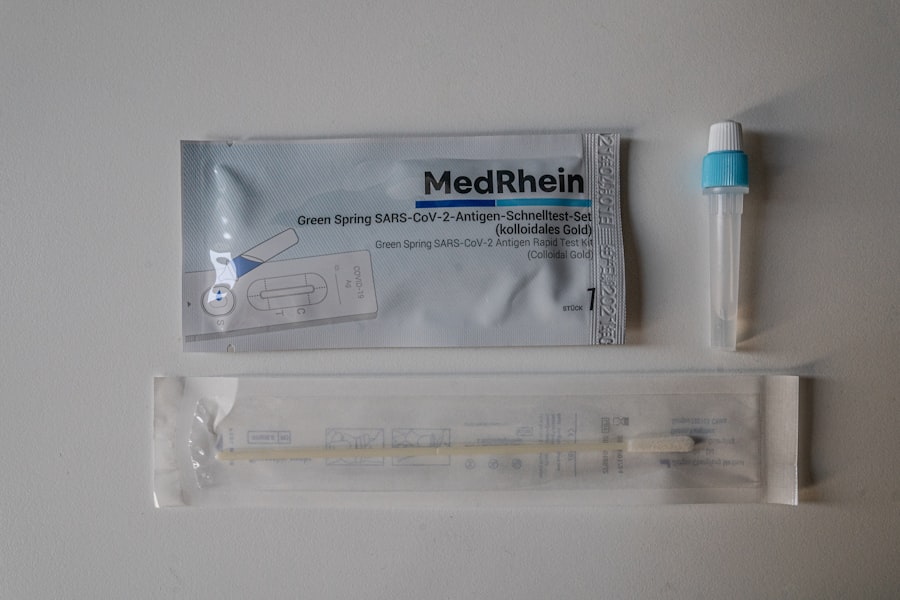The landscape of healthcare has undergone a significant transformation over the past few decades, with the rise of MedTech marketing playing a pivotal role in this evolution. As medical technology continues to advance at an unprecedented pace, the need for effective marketing strategies has become increasingly apparent. MedTech companies are no longer just manufacturers of devices and equipment; they are now key players in the healthcare ecosystem, responsible for educating healthcare professionals and patients alike about the benefits and applications of their innovations.
This shift has led to a burgeoning field of MedTech marketing, which focuses on communicating complex medical information in a way that is accessible and engaging. The rise of MedTech marketing can be attributed to several factors, including the growing emphasis on patient-centered care and the increasing complexity of medical technologies. As patients become more informed and involved in their healthcare decisions, the demand for clear, concise information about medical devices and treatments has surged.
This has prompted MedTech companies to adopt more sophisticated marketing strategies that not only highlight the features of their products but also address the specific needs and concerns of patients. By leveraging various channels such as social media, digital advertising, and content marketing, these companies are able to reach a wider audience and foster a deeper connection with both healthcare providers and patients.
Key Takeaways
- MedTech marketing is increasingly vital for connecting healthcare innovations with patients and providers.
- Technology enables personalized and targeted marketing strategies that improve patient engagement and outcomes.
- Data analytics plays a crucial role in optimizing marketing efforts and understanding patient needs.
- Navigating regulatory requirements is essential to ensure compliant and ethical MedTech marketing practices.
- Building trust and credibility is key to successful MedTech campaigns and long-term industry growth.
Leveraging Technology to Reach and Engage Patients
In an era where technology permeates every aspect of our lives, MedTech marketing has embraced digital tools to enhance patient engagement. The proliferation of smartphones and internet access has created new opportunities for MedTech companies to connect with patients in real-time. Mobile applications, for instance, have emerged as powerful platforms for delivering personalized health information, reminders for medication adherence, and educational resources about medical devices.
By utilizing these technologies, companies can create a more interactive experience that empowers patients to take charge of their health. Moreover, social media platforms have become essential tools for MedTech marketing. Companies can use these channels to share success stories, patient testimonials, and informative content that demystifies complex medical technologies.
Engaging with patients through social media not only helps build brand awareness but also fosters a sense of community among users who may be experiencing similar health challenges. For example, a MedTech company specializing in diabetes management devices might create a Facebook group where patients can share their experiences, ask questions, and receive support from both peers and healthcare professionals. This level of engagement not only enhances patient loyalty but also provides valuable insights into patient needs and preferences.
Personalized Medicine: Targeted Marketing for Better Patient Outcomes

The concept of personalized medicine has revolutionized the way healthcare is delivered, and it has significant implications for MedTech marketing strategies. Personalized medicine focuses on tailoring treatments and interventions to individual patients based on their unique genetic makeup, lifestyle, and preferences. This approach necessitates a shift in marketing tactics, as MedTech companies must now communicate the value of their products in a way that resonates with diverse patient populations.
Targeted marketing campaigns that leverage data analytics can help MedTech companies identify specific patient segments that would benefit most from their innovations. For instance, a company developing a new cardiac monitoring device might analyze demographic data to target older adults with a history of heart disease. By crafting messages that speak directly to this audience’s concerns—such as improving quality of life or reducing hospital visits—companies can enhance the effectiveness of their marketing efforts.
Additionally, personalized marketing can extend beyond demographics; it can also involve tailoring content based on patients’ previous interactions with the brand or their expressed interests in certain health topics.
The Role of Data Analytics in MedTech Marketing
| Metric | Description | Impact on MedTech Marketing | Example Data |
|---|---|---|---|
| Customer Segmentation Accuracy | Percentage of correctly identified customer segments using data analytics | Improves targeted marketing campaigns and resource allocation | 85% |
| Lead Conversion Rate | Ratio of leads converted to customers through data-driven marketing efforts | Measures effectiveness of personalized marketing strategies | 12% |
| Campaign ROI | Return on investment from marketing campaigns optimized by data analytics | Helps justify marketing spend and optimize budget allocation | 150% |
| Customer Lifetime Value (CLV) | Projected revenue from a customer over their entire relationship | Guides long-term marketing and retention strategies | 1200 units |
| Churn Rate | Percentage of customers lost over a specific period | Identifies retention issues and areas for improvement | 8% |
| Engagement Rate | Level of interaction with marketing content (clicks, shares, comments) | Indicates content relevance and audience interest | 25% |
| Time to Market | Duration from product development to market launch | Data analytics helps streamline processes and reduce delays | 6 months |
Data analytics has become an indispensable tool in the arsenal of MedTech marketers, enabling them to make informed decisions based on real-time insights. By harnessing data from various sources—such as patient surveys, social media interactions, and website analytics—companies can gain a comprehensive understanding of their target audience’s behaviors and preferences. This information allows marketers to refine their strategies, optimize campaigns, and ultimately improve patient engagement.
For example, A MedTech company might analyze data from its website to determine which product pages receive the most traffic and which content leads to higher conversion rates. By identifying trends in user behavior, the company can adjust its marketing strategy to focus on high-performing products or create additional content that addresses common questions or concerns. Furthermore, predictive analytics can help anticipate future trends in patient needs or market demands, allowing companies to stay ahead of the competition and innovate accordingly.
Navigating Regulatory Challenges in Marketing MedTech Solutions
While the potential for growth in MedTech marketing is substantial, it is not without its challenges—particularly when it comes to navigating regulatory frameworks. The healthcare industry is heavily regulated, with strict guidelines governing how medical devices can be marketed to both healthcare professionals and patients. These regulations are designed to ensure that marketing practices are ethical and that patients receive accurate information about medical technologies.
MedTech companies must be diligent in understanding and complying with these regulations to avoid potential legal repercussions. For instance, the U.S. Food and Drug Administration (FDA) has specific guidelines regarding promotional materials for medical devices, including requirements for substantiating claims made about product efficacy and safety.
Companies must also be cautious about using testimonials or endorsements from healthcare professionals, as these can be subject to scrutiny under regulatory guidelines. By establishing robust compliance protocols and working closely with legal experts, MedTech marketers can navigate these challenges while still effectively promoting their products.
Building Trust and Credibility in the MedTech Industry

In an industry where patient safety is paramount, building trust and credibility is essential for MedTech companies seeking to establish themselves as leaders in the market. Trust is not only crucial for attracting new customers but also for retaining existing ones; patients are more likely to choose products from brands they perceive as reliable and transparent. To foster this trust, MedTech marketers must prioritize authenticity in their messaging and engage in open communication with both healthcare providers and patients.
One effective strategy for building credibility is through educational content that informs stakeholders about the science behind medical technologies. By providing clear explanations of how devices work, their benefits, and potential risks, companies can position themselves as thought leaders in the field. Additionally, sharing clinical research findings or case studies that demonstrate the effectiveness of their products can further enhance credibility.
For example, a company that develops orthopedic implants might publish peer-reviewed studies showcasing improved patient outcomes following surgery with their devices. Such transparency not only builds trust but also reinforces the company’s commitment to patient safety.
The Future of Healthcare: Innovations in MedTech Marketing
As technology continues to evolve at a rapid pace, the future of MedTech marketing promises to be dynamic and innovative. Emerging technologies such as artificial intelligence (AI), virtual reality (VR), and augmented reality (AR) are poised to transform how companies engage with patients and healthcare providers. AI-driven chatbots, for instance, can provide instant support and information to patients seeking guidance on medical devices or treatment options.
This level of accessibility can significantly enhance patient experience and satisfaction. Moreover, VR and AR technologies offer exciting possibilities for immersive marketing experiences. For example, a MedTech company could create a virtual simulation that allows healthcare professionals to explore the features of a new surgical device in a realistic environment before its launch.
Such innovative approaches not only capture attention but also provide valuable hands-on experience that can influence purchasing decisions. As these technologies become more mainstream, MedTech marketers will need to adapt their strategies to incorporate these tools effectively.
Case Studies: Successful MedTech Marketing Campaigns
Examining successful case studies can provide valuable insights into effective MedTech marketing strategies. One notable example is the campaign launched by Dexcom, a company specializing in continuous glucose monitoring systems for diabetes management. Dexcom utilized social media platforms to create an engaging community around diabetes care by sharing user-generated content featuring real patients’ experiences with their devices.
This approach not only humanized the brand but also fostered a sense of belonging among users who could relate to each other’s challenges. Another compelling case study is that of Philips Healthcare’s “Healthier Lives” campaign, which aimed to raise awareness about heart health through educational content and community engagement initiatives. The campaign included partnerships with healthcare organizations to host free heart health screenings and workshops across various communities.
By positioning itself as a proactive partner in public health rather than just a product manufacturer, Philips successfully built trust with consumers while promoting its cardiac care solutions. These case studies illustrate how effective MedTech marketing goes beyond traditional advertising; it involves creating meaningful connections with patients and healthcare providers through education, community engagement, and authentic storytelling. As the industry continues to evolve, these principles will remain essential for driving success in MedTech marketing efforts.



